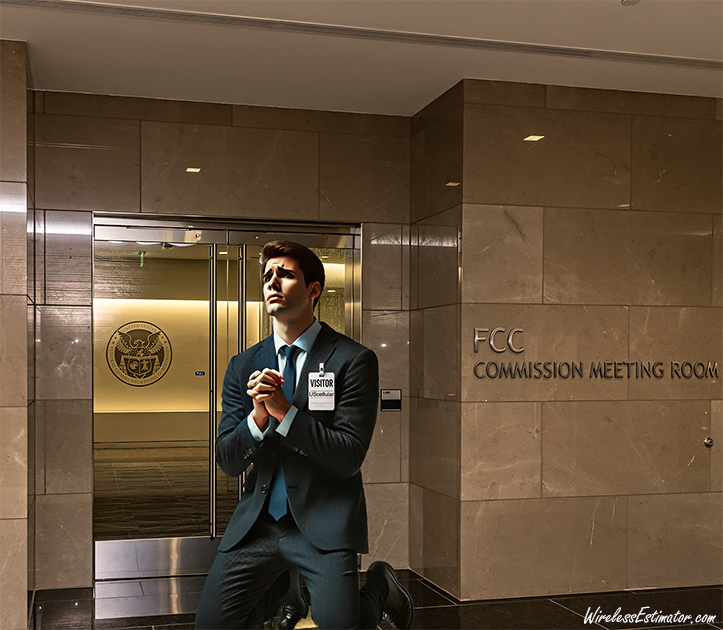
UScellular executives said that their future could be doomed if the T-Mobile acquisition isn’t completed.
In a pivotal step toward finalizing T-Mobile’s acquisition of U.S. Cellular Corporation’s (UScellular) wireless assets, key representatives, including UScellular CEO Laurent C. Therivel, met with Federal Communications Commission (FCC) officials last week in meetings to discuss the transaction’s implications and anticipated benefits. The discussions, aimed at securing FCC consent for the transfer of control of licenses and authorizations, were held as part of ongoing hearings under FCC Docket No. 24-286.
According to a letter sent to the FCC, during the meetings, UScellular’s leadership team, including General Counsel Adriana Rios Welton and legal representatives from Wilkinson Barker Knauer, LLP, underscored the strategic challenges that led to the sale and how T-Mobile’s acquisition would enhance service offerings and coverage for both companies’ subscribers.
T-Mobile has agreed to acquire a significant portion of UScellular’s spectrum assets and customer base. In addition, in the deal valued at $4.4 billion, T-Mobile will enter into a long-term agreement to lease a minimum of 2,015 incremental towers owned by UScellular. By integrating UScellular’s existing spectrum and infrastructure, the transaction is expected to bolster T-Mobile’s reach, particularly in rural and underserved areas.
Addressing UScellular’s Challenges
UScellular representatives emphasized the company’s difficulties competing within an increasingly aggressive telecom market. Despite considerable investments in 5G spectrum and promotional activities, UScellular has experienced declining subscriber numbers and mounting debt over recent years. This financial strain has reduced its capacity to invest in network improvements, putting it at a competitive disadvantage as larger providers increase their presence within UScellular’s service areas.
The meetings also highlighted the structural limitations imposed by UScellular’s dispersed geographic footprint, which has limited its scale and network capabilities. Efforts to reorganize and stabilize the company proved insufficient, leaving the sale to T-Mobile as the most viable option to ensure continued service for UScellular’s customers.
Enhancing Consumer Benefits
UScellular representatives detailed the public interest benefits expected from the merger. T-Mobile’s acquisition would expand network capacity and speed for current UScellular and T-Mobile customers, enhancing overall network quality and experience, particularly in rural regions with limited coverage. The transaction would allow UScellular customers to switch to T-Mobile plans or retain their current plans, offering flexibility and potentially lower costs. T-Mobile also intends to deploy its in-home broadband service to more households, leveraging the additional spectrum gained from UScellular.
T-Mobile is set to integrate UScellular’s spectrum into its network shortly after the deal’s closing, accelerating access to improved network capabilities for both user bases. This rapid deployment underscores T-Mobile’s commitment to enhancing connectivity and broadband options, aligning with broader FCC goals to improve telecom services nationwide.
FCC Decision Pending
As the FCC reviews the transaction, Therivel and his team remain optimistic that the sale will mutually benefit UScellular’s subscribers and employees while offering T-Mobile a strategic advantage in its expansion efforts. The FCC’s decision, expected in the coming months, will be instrumental in finalizing the acquisition, setting the stage for a significant shift in the U.S. telecommunications landscape.
The meetings also included input from representatives of DLA Piper LLP, which represents T-Mobile. Several FCC officials, including Chairwoman Jessica Rosenworcel and Commissioners Brendan Carr, Geoffrey Starks, and Nathan Simington, attended the meetings. The FCC’s deliberation on the transaction will weigh the competitive and public interest factors that UScellular and T-Mobile’s counsel raised.

















